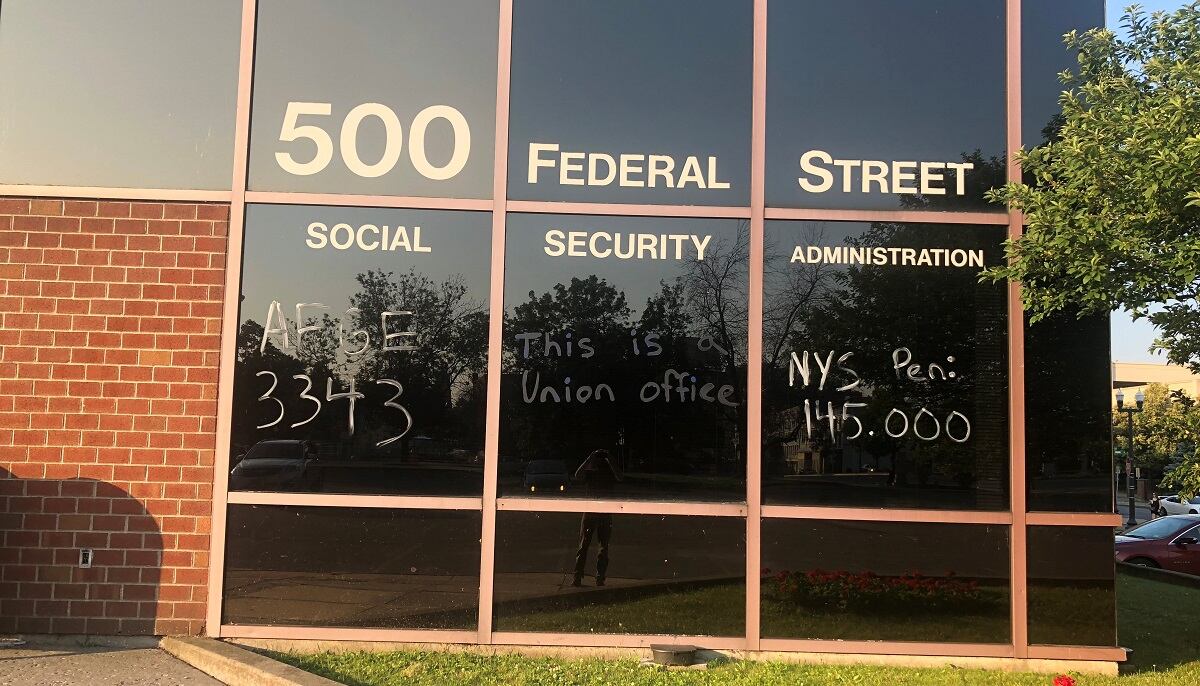Employees at the Social Security Administration overwhelmingly do not have confidence in their leadership’s ability to successfully direct the agency, according to surveys released by two employee associations Dec. 9.
The American Federation of Government Employees’ Council 220, which represents 26,000 SSA employees, unanimously found no confidence in SSA Commissioner Andrew Saul and Deputy Commissioner David Black.
The Association of Administrative Law Judges, which represents approximately 1,100 administrative law judges who are responsible for making decisions on disability claims at the hearing level, found that 88 percent of their members have no confidence in Saul. And 84 percent of those members expressed no confidence in Theresa Gruber, deputy commissioner for Social Security’s Office of Hearing Operations, and Chief Administrative Law Judge Patrick Nagle.
RELATED

“Our country knows its administrative law judges to be fair and make accurate decisions after a thorough review of the facts…they’ve done so in this case and the result couldn’t be clearer. We have no confidence in the top political appointees at Social Security as well as the leadership over its hearing operations,” said Judge Melissa McIntosh, president of the AALJ, in a news release.
Much of the dissatisfaction stemmed from how agency leaders have managed the COVID-19 pandemic and employee safety concerns.
“Under the Trump administration, SSA leadership has gone above and beyond to castigate and undermine public servants, leaving employees demoralized and out of the loop,” said Ralph de Juliis, AFGE Council 220 president, in a news release.
“SSA employees have spent the past 10 months fulfilling the agency’s mission while working remotely or going in to the office in cases of dire need, yet Commissioner Saul and Deputy Commissioner Black refuse to offer any insight or guidance on their plan to return employees to the office in a safe manner. As we transition to a new administration, it is essential that President-elect Biden not only removes SSA leadership, but clears the agency of all who were infected by Saul’s anti-employee bias.”
RELATED

Prior to the pandemic, SSA came under scrutiny for rolling back a years-long telework program due to oversight and case backlog concerns. Watchdog reports, however, found that the agency had been able to respond to calls more efficiently under the telework program.
On top of pandemic response, AALJ concerns centered on the agency’s decision to allow non-ALJ employees to hear initial hearings for the sake of reducing a backlog that the AALJ contests even exists.
“These attorney advisors, who the agency calls ‘appeals judges,’ will not have the independence nor experience that disability claimants count on right now. Every American who works has paid into the disability fund and they have every legal right to request support when they feel they are injured or have a disability and can’t work. This is a standard that our nation has met for decades, throughout multiple administrations, until now,” said McIntosh.
“Right now, these ‘appeals judges’ only review cases after an ALJ. What the leaders are doing is creating a system whereby their employees would be holding initial hearings and then reviewing their own decisions, raising due process concerns. And, unlike ALJs who are required by statute to have decisional independence, these employees receive annual bonuses.”
Jessie Bur covers federal IT and management.





